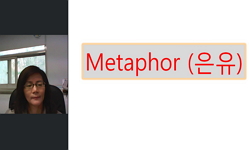전 세계적으로 비만인구의 증가로 인해 경제적 부담이 확대되고 있으며, 그 원인으로 육체적 활동의 감소 및 식이관리의 실패가 손꼽히고 있다. 영양성분 및 칼로리를 기반으로 한 맞춤 식...
http://chineseinput.net/에서 pinyin(병음)방식으로 중국어를 변환할 수 있습니다.
변환된 중국어를 복사하여 사용하시면 됩니다.
- 中文 을 입력하시려면 zhongwen을 입력하시고 space를누르시면됩니다.
- 北京 을 입력하시려면 beijing을 입력하시고 space를 누르시면 됩니다.
https://www.riss.kr/link?id=A102128543
- 저자
- 발행기관
- 학술지명
- 권호사항
-
발행연도
2016
-
작성언어
Korean
- 주제어
-
KDC
310
-
등재정보
KCI등재
-
자료형태
학술저널
- 발행기관 URL
-
수록면
435-442(8쪽)
-
KCI 피인용횟수
0
- DOI식별코드
- 제공처
-
0
상세조회 -
0
다운로드
부가정보
국문 초록 (Abstract)
전 세계적으로 비만인구의 증가로 인해 경제적 부담이 확대되고 있으며, 그 원인으로 육체적 활동의 감소 및 식이관리의 실패가 손꼽히고 있다. 영양성분 및 칼로리를 기반으로 한 맞춤 식단정보 제공 시스템과는 차별적으로 본 연구는 개인 맞춤형 기능성 식품을 추천하기 위해 비만 관련 SNP (single nucleotide polymorphism) 정보를 활용하였다. 본 연구를 위해 GWAS (Genome-wide association study) 분석을 수행하여 한국인 특이적인 비만 관련 SNP을 발굴하고, 이를 활용하여 유전적 정보를 입력하여 SNP genoype-phenoype 정보에 따른 맞춤 식단옴을 추천하였다. 또한 USDA (The United States Department of Agriculture) 식품 정보를 활용할 수 있도록 식품 통합 Database를 구축하여 식단 추천에 적용하였다. 그 결과, 표현형 정보 BMI (Body Mass Index)는 정상 수치를 가지고 있으나, 비만 관련 SNP 정보를 가지고 있는 샘플은 유전적 비만 위험도를 나타내어 식이관리가 필요하다는 정보를 확인하였으며, 관련 식품 정보를 제공하였다. 따라서 표현형에 따른 비만에 관한 정보와 유전형 정보가 일치하는 것은 아니며, 이는 표현형적 정보만을 이용한 비만 관리 식이 추천에는 한계가 있음을 의미하며 이러한 결과는 비만외 다른 성인병들에도 적용이 필요하며 이를 위해서는 표현형-유전적 통합정보를 기반 한 맞춤식이 추천이 필요함을 나타내었다.
다국어 초록 (Multilingual Abstract)
Obesity extends the global economic burden and it causes that the failure of a reduction of physical activity, and diet management. In this work, nutritional information and personalized diet based on calorie supply system and is discriminatory utiliz...
Obesity extends the global economic burden and it causes that the failure of a reduction of physical activity, and diet management. In this work, nutritional information and personalized diet based on calorie supply system and is discriminatory utilized the obesity-related SNP information in order to recommend a personalized functional foods. This study performed a GWAS analysis for the excavation of a Korean-specific and obesity-related SNP, which utilizes genetic information were recommended by entering a personalized diet in accordance with the SNP genotype-phenotype information. In addition, we integrated Database with relation of nutrient for utilizing the USDA Food information and it was applied to recommend with Sickdanome. As a result, the obesity-related SNP information was confirmed in the sample which has the normal value BMI. In this study, we have recognized that the phenotype information related obesity, BMI is inconsistent with the SNP genotype information. This result is shown that it is necessary to provide the personalized dietary SickdanOme recommendation based on the both pheotype-genotype information.
목차 (Table of Contents)
- 요약
- Abstract
- I. 서론
- II. 관련기술
- III. 성능평가
- 요약
- Abstract
- I. 서론
- II. 관련기술
- III. 성능평가
- IV. 결론
- 참고문헌
참고문헌 (Reference)
1 도명술, "영양유전체학(Nutrigenomics)의 최근 경향" 한국식품영양과학회 34 (34): 1642-1654, 2005
2 김경훈, "네트워크 분석 기법을 이용한 운동처방 관리시스템 설계 및 구현" 한국콘텐츠학회 11 (11): 112-121, 2011
3 Korean National Statistical Office, "The statistics of life table"
4 최정란, "TT Mutant Homozygote of Kruppel-like Factor 5 Is a Key Factor for Increasing Basal Metabolic Rate and Resting Metabolic Rate in Korean Elementary School Children" 한국유전체학회 11 (11): 263-271, 2013
5 J. S. Lee, "Rapidly increasing prevalence of obesity and their confident determinants in Korea" 23 (23): 1-11, 2006
6 B. Padhukasahasram, "Presymptomatic Risk Assessment for Chronic Non-Communicable Diseases" 5 (5): e14338-, 2010
7 Z. David, "Personalized Nutrition by Prediction of Glycemic Response" 163 (163): 1079-1094, 2015
8 P. G. Kopelman, "Obesity as a medical problem" 404 : 635-643, 2000
9 N. E. A. Gaboon, "Nutritional genomics and personalized diet" 12 (12): 1-7, 2001
10 J. B. German, "Nutrigenomics and Personalized Diets : What Will They Mean for Food?" 2 : 97-123, 2011
1 도명술, "영양유전체학(Nutrigenomics)의 최근 경향" 한국식품영양과학회 34 (34): 1642-1654, 2005
2 김경훈, "네트워크 분석 기법을 이용한 운동처방 관리시스템 설계 및 구현" 한국콘텐츠학회 11 (11): 112-121, 2011
3 Korean National Statistical Office, "The statistics of life table"
4 최정란, "TT Mutant Homozygote of Kruppel-like Factor 5 Is a Key Factor for Increasing Basal Metabolic Rate and Resting Metabolic Rate in Korean Elementary School Children" 한국유전체학회 11 (11): 263-271, 2013
5 J. S. Lee, "Rapidly increasing prevalence of obesity and their confident determinants in Korea" 23 (23): 1-11, 2006
6 B. Padhukasahasram, "Presymptomatic Risk Assessment for Chronic Non-Communicable Diseases" 5 (5): e14338-, 2010
7 Z. David, "Personalized Nutrition by Prediction of Glycemic Response" 163 (163): 1079-1094, 2015
8 P. G. Kopelman, "Obesity as a medical problem" 404 : 635-643, 2000
9 N. E. A. Gaboon, "Nutritional genomics and personalized diet" 12 (12): 1-7, 2001
10 J. B. German, "Nutrigenomics and Personalized Diets : What Will They Mean for Food?" 2 : 97-123, 2011
11 L. AFMAN, "Nutrigenomics : From Molecular Nutrition to Prevention of Disease" 106 (106): 569-576, 2006
12 M. Barnett, "Metabolomics and Proteomics, and What to Do with All These ‘Omes’ : Insights from Nutrigenomic Investigations in New Zealand" 7 : 274-282, 2014
13 R. J. Kuczmarski, "Increasing prevalence of overweight among US adults : The National Health and Nutrition Examination Surveys, 1960to 1991" 272 (272): 205-211, 1994
14 M. A. Roberts, "Genomics : food and nutrition" 12 (12): 516-522, 2001
15 Sonja I. Berndt, "Genome-wide meta-analysis identifies 11 new loci for anthropocentric traits and provides insights into genetic architecture" 45 (45): 501-512, 2013
16 Myoungsook Lee, "Genome-wide association study for the interaction between BMR and BMI in obese Korean women including overweight" 한국영양학회 10 (10): 115-124, 2016
17 E. Wheeler, "Genome-wide SNP and CNV analysis identifies common and low-frequency variants associated with severe early-onset obesity" 45 (45): 513-517, 2013
18 C. T. Verrips, "General introduction to the importance of genomics in food biotechnology and nutrition" 12 (12): 483-487, 2001
19 E. J. Schiffrin, "Food Processing : probiotic microorganisms for beneficial foods" 12 (12): 499-502, 2001
20 김규아, "A Study on the U-Healthcare Service System for Obesity Patients" 720-722, 2010
동일학술지(권/호) 다른 논문
-
영화 <그녀>를 통해 본 인공지능과 인간의 공존이 주는 의미
- 한국콘텐츠학회
- 김미혜(Mi-Hye Kim)
- 2016
- KCI등재
-
- 한국콘텐츠학회
- 조석현(Sukhyun Cho)
- 2016
- KCI등재
-
- 한국콘텐츠학회
- 김효경(Hyokyung Kim)
- 2016
- KCI등재
-
DACUM 기법을 활용한 간호대학생의 학교현장실습 직무분석
- 한국콘텐츠학회
- 서요한(Yohan Seo)
- 2016
- KCI등재
분석정보
인용정보 인용지수 설명보기
학술지 이력
| 연월일 | 이력구분 | 이력상세 | 등재구분 |
|---|---|---|---|
| 2027 | 평가예정 | 재인증평가 신청대상 (재인증) | |
| 2021-01-01 | 평가 | 등재학술지 유지 (재인증) |  |
| 2018-01-01 | 평가 | 등재학술지 유지 (등재유지) |  |
| 2015-01-01 | 평가 | 등재학술지 유지 (등재유지) |  |
| 2011-01-01 | 평가 | 등재학술지 유지 (등재유지) |  |
| 2008-01-01 | 평가 | 등재학술지 선정 (등재후보2차) |  |
| 2007-05-04 | 학회명변경 | 영문명 : The Korea Contents Society -> The Korea Contents Association |  |
| 2007-01-01 | 평가 | 등재후보 1차 PASS (등재후보1차) |  |
| 2006-01-01 | 평가 | 등재후보학술지 유지 (등재후보1차) |  |
| 2004-01-01 | 평가 | 등재후보학술지 선정 (신규평가) |  |
학술지 인용정보
| 기준연도 | WOS-KCI 통합IF(2년) | KCIF(2년) | KCIF(3년) |
|---|---|---|---|
| 2016 | 1.21 | 1.21 | 1.26 |
| KCIF(4년) | KCIF(5년) | 중심성지수(3년) | 즉시성지수 |
| 1.29 | 1.25 | 1.573 | 0.33 |





 ScienceON
ScienceON DBpia
DBpia






